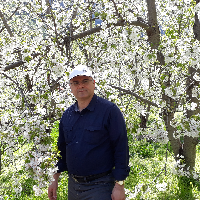Evaluation of effect seed priming with salicylic acid on yield and yield components oilseed rape (Brassica napus L.)
Oilseeds are an important part of agricultural products which are important for nutrition, in addition to industrial applications. Plant oils are used to cooking, manufacture of cosmetics, plastics, lubricants, and insulators for the electricity and as biofuels (to reduce greenhouse effect). Rapeseed is one of the most important oilseeds that ranks third after soybeans and oil palms. Rapeseed oil contains less than 2% erosic acid and low saturated fatty acid levels, which help to reduce blood cholesterol levels. This research was carried out to investigate the effect of priming of rapeseed with salicylic acid on yield and yield components the research farm at the University of Zanjan.
This research was carried out as a randomized complete block design with four treatments during growing seasons 2014-2015. Treatments in the research included a control (just distilled water), 50, 75 and 100 μM salicylic acid concentrations. The seeds were soaked for 12 hours in salicylic acid solution, then, seeds exposed to airflow and air-dried to return original state before treatment with salicylic acid. After seed treatment with salicylic acid at the pre-mentioned concentrations, the seeds were then sown in four plots in five replications. To remove the marginal effect and evaluate the factors, the 7 plants in the middle row of each plot were randomly marked. The relevant traits measured 15 days after the physiological maturity of rapeseed.
The results indicated that seed priming with salicylic acid caused a significant difference in yield, yield components and dependent traits. Salicylic acid treatments significantly increased the number of stems, pods, length and dry weight the plant, length of the pods and number of seeds in each pod, the seeds weight in main and secondary stems, total weight of seeds and dry weight of roots compared to control. In contrast, no significant effect was observed on the empty pods and 1000- seeds weight.
The results of this research showed that seed priming with salicylic acid can increase yield and yield components of rapeseed plants. This is due to the effect of salicylic acid on the number of pods in plants and the number of seeds in pods. Also, plant height and the secondary stems in plants increased with salicylic acid application. In addition, height increase, resulted in more development of reproductive organs, also allowed for an increase of leaf area index and greater carbon absorption potential in plants.
Priming , Canola , Salicylic acid , Yield , Yield components
- حق عضویت دریافتی صرف حمایت از نشریات عضو و نگهداری، تکمیل و توسعه مگیران میشود.
- پرداخت حق اشتراک و دانلود مقالات اجازه بازنشر آن در سایر رسانههای چاپی و دیجیتال را به کاربر نمیدهد.


